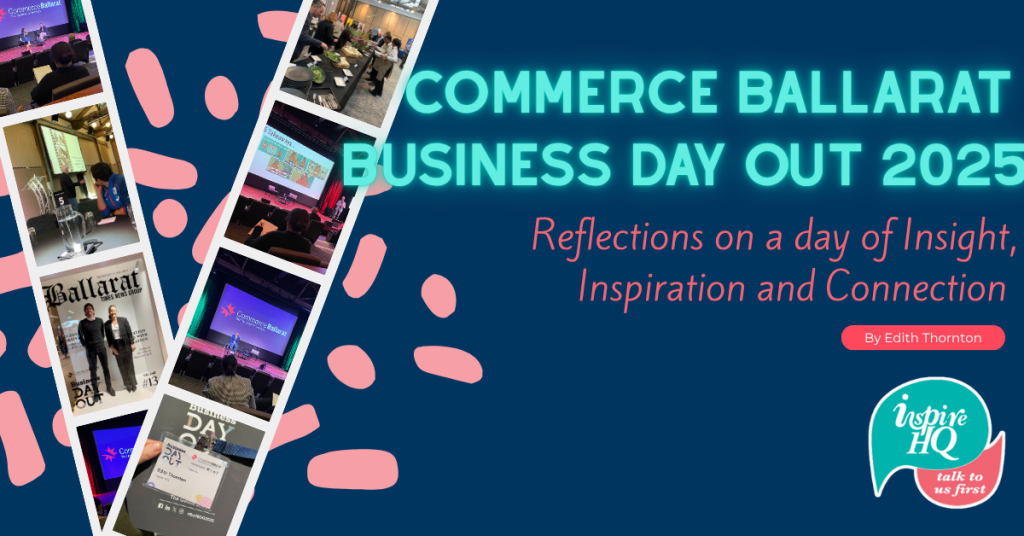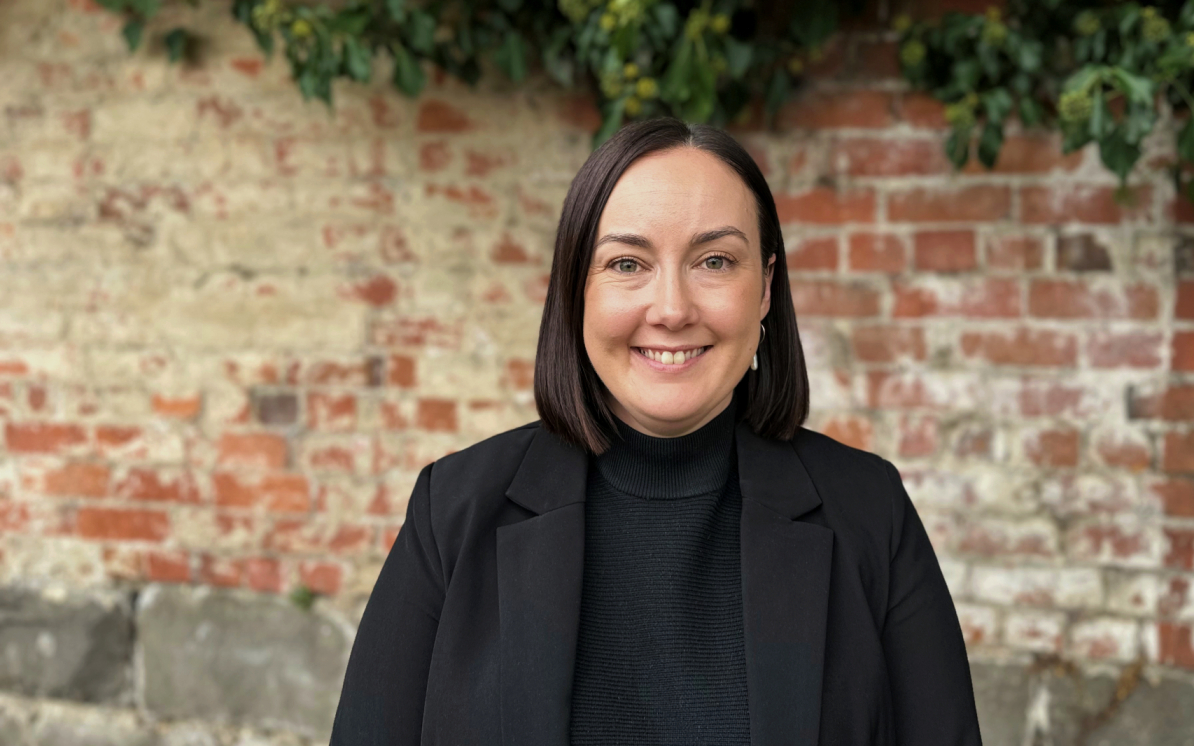Last week, I had the pleasure of attending the 2025 Business Day Out hosted by Commerce Ballarat, set in the stunning Ballarat Goods Shed. The event offered a mix of inspiring keynotes, strategic insights and genuine networking opportunities – all of which left a lasting impact on me. I walked away feeling energised – not just about the future of business, but about my own place within it. The event brings together local business leaders, entrepreneurs and professionals for an afternoon of learning, growth and connection – and this year I can tell you it delivered all three in abundance.
The speaker lineup was nothing short of phenomenal:
- Dr Dinesh Palipana, who reminded us of the power of grit and purpose as he shared his journey from life changing injury to becoming a doctor and disability advocate
- Dani Pearce, founder of Merry People, spoke candidly about building a brand from scratch – starting with a single idea (making gumboots people actually want to wear) and growing it into an international business.
- Shaun Briggs, head of marketing at Specsavers, gave us a reality check on the downfalls of lazy marketing and offered some powerful principles to guide more effective campaigns. Despite not being in marketing myself, I found his takeaways incredibly relevant. His advice on ensuring your message and branding is consistent across your business – and in doing so in scalable, actionable ways was really refreshing.
- Jason Clarke, founder of Minds at Work, delivered one of the most thought provoking sessions of the day. Through clever stories, curious questions and hands on exercises, he didn’t just tell us to think differently, he showed us.
Jason’s session in the afternoon was the most impactful to me. He challenged us to see problems not as dead ends, but as unopened doors. His core message? If something doesn’t work, Flip It. Try the opposite. Change the Frame. Look at the problem from a different angle. What if your roadblock isn’t a limitation, but an opportunity in disguise?
One activity involved brainstorming everything you need to open a restaurant – menus, food, tables, customers, electricity. Then each group was told to eliminate one item. Our group had to open a restaurant without tables. At first, we were a little stumped. But removing just one element sparked a lot of new ideas. We reimagined the entire concept: the theme, the vibe, even the name of the restaurant. What started as a restriction turned into creative freedom.
Jason also shared examples of so-called failures that turned into unexpected inventions – Post It Notes, raisins, even Champagne! They all began as something that didn’t go to plan, but because someone was curious enough to ask, “What else could this be?” something new and brilliant emerged. You would be surprised at the number of things we know of and use today that are inventions born of perceived failure.
Here’s how I’ve started to bring that “Flip It!” mindset into my own world:
- In creative projects: If I feel stuck, I now ask, what if I did the opposite? It sounds so simple but it forces me to break out of my usual patterns and unlock new possibilities and not be so rigid in my own thinking. I am someone that likes a plan, follows the plan, and when the plan “fails” analyse that information almost to the point of an autopsy. Instead, I’m working on turning some of that thinking around to – hey this might not actually be a failure but something that I haven’t thought of yet and see where that line of thought leads instead.
- In team dynamics: Instead of pushing harder on something that isn’t working, I want to start exploring how I can approach things differently. That might mean adjusting the timing of when conversations or decisions happen – perhaps giving people more space to think, or bringing something up when the energy is better. Cruicially for me, it might mean changing how I communicate. Rather than sending a long email and expecting immediate alignment, I might choose a quick call or face to face chat to clear up confusion. If I am leading conversation I can be more mindful of whether I’m creating space for others to contribute – or unintentionally dominating.
- In personal growth: when I hear myself saying, “that’s not how I do things” I want to challenge that voice. Often, it’s a protective habit more than a truth. For example, I might resist public speaking, or putting forward an idea because it feels uncomfortable – but what if I flipped and saw it as a skill I could grow into, not a fixed trait? I might try it and decide it’s still not for me, or try it and realise I was limiting my abilities! What do I really have to lose? It could also mean something smaller, like avoiding asking for help because I see myself as self-reliant, I’m going to challenge myself to reach out and see what opens up when I lean into collaboration and networking.
Flipping my inner dialogue from “That’s not me” to “What if it could be?” has helped me gently start to move my boundaries. Growth doesn’t always require a massive overhaul—sometimes it starts with trying the opposite of your default and just seeing what happens, and innovation doesn’t always look like genius. More often that not, it looks like curiosity, persistence and a willingness to experiment when the original plan no longer services you.
So the next time something is not working – don’t double down – flip it!


